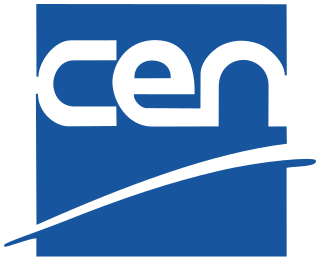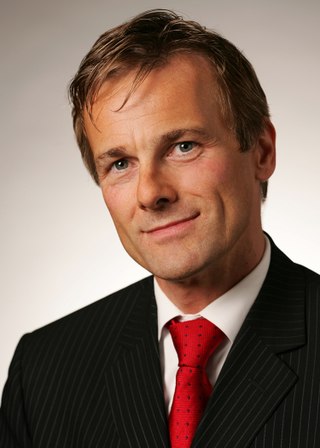
The European Union (EU) is a supranational political and economic union of 27 member states that are located primarily in Europe. The union has a total area of 4,233,255 km2 (1,634,469 sq mi) and an estimated total population of over 448 million. The EU has often been described as a sui generis political entity combining the characteristics of both a federation and a confederation.

Franchising is based on a marketing concept which can be adopted by an organization as a strategy for business expansion. Where implemented, a franchisor licenses some or all of its know-how, procedures, intellectual property, use of its business model, brand, and rights to sell its branded products and services to a franchisee. In return, the franchisee pays certain fees and agrees to comply with certain obligations, typically set out in a franchise agreement.

Fair trade is a term for an arrangement designed to help producers in developing countries achieve sustainable and equitable trade relationships. The fair trade movement combines the payment of higher prices to exporters with improved social and environmental standards. The movement focuses in particular on commodities, or products that are typically exported from developing countries to developed countries but is also used in domestic markets, most notably for handicrafts, coffee, cocoa, wine, sugar, fruit, flowers and gold.

The International Chamber of Commerce is the largest, most representative business organization in the world. Its over 45 million members in over 100 countries have interests spanning every sector of private enterprise.

Research and development, is the set of innovative activities undertaken by corporations or governments in developing new services or products, and improving existing ones. Research and development constitutes the first stage of development of a potential new service or the production process.
In marketing, brand management begins with an analysis on how a brand is currently perceived in the market, proceeds to planning how the brand should be perceived if it is to achieve its objectives and continues with ensuring that the brand is perceived as planned and secures its objectives. Developing a good relationship with target markets is essential for brand management. Tangible elements of brand management include the product itself; its look, price, and packaging, etc. The intangible elements are the experiences that the target markets share with the brand, and also the relationships they have with the brand. A brand manager would oversee all aspects of the consumer's brand association as well as relationships with members of the supply chain.

Organic certification is a certification process for producers of organic food and other organic agricultural products, in the European Union more commonly known as ecological or biological products. In general, any business directly involved in food production can be certified, including seed suppliers, farmers, food processors, retailers and restaurants. A lesser known counterpart is certification for organic textiles that includes certification of textile products made from organically grown fibres.
College and university rankings order institutions in higher education based on factors that vary depending on the ranking. Some rankings evaluate institutions within a single country, while others assess institutions worldwide. Rankings are typically conducted by magazines, newspapers, websites, governments, or academics. In addition to ranking entire institutions, specific programs, departments, and schools can be ranked. Some rankings consider measures of wealth, excellence in research, selective admissions, and alumni success. Rankings may also consider various combinations of measures of specialization expertise, student options, award numbers, internationalization, graduate employment, industrial linkage, historical reputation and other criteria.

The European Committee for Standardization is a public standards organization whose mission is to foster the economy of the European Single Market and the wider European continent in global trading, the welfare of European citizens and the environment by providing an efficient infrastructure to interested parties for the development, maintenance and distribution of coherent sets of standards and specifications.
A mobile virtual network operator (MVNO) is a wireless communications services provider that does not own the wireless network infrastructure over which it provides services to its customers. An MVNO enters into a business agreement with a mobile network operator to obtain bulk access to network services at wholesale rates, then sets retail prices independently. An MVNO may use its own customer service, billing support systems, marketing, and sales personnel, or it could employ the services of a mobile virtual network enabler (MVNE).
Procurement is the process of locating and agreeing to terms and purchasing goods, services, or other works from an external source, often with the use of a tendering or competitive bidding process. The term may also refer to a contractual obligation to "procure", i.e. to "ensure" that something is done. When a government agency buys goods or services through this practice, it is referred to as government procurement or public procurement.

The Global Reporting Initiative is an international independent standards organization that helps businesses, governments, and other organizations understand and communicate their impacts on issues such as climate change, human rights, and corruption.

Europa Nostra is a pan-European Federation for Cultural Heritage, representing citizens' organisations that work on safeguarding Europe's cultural and natural heritage. It is the voice of this movement to relevant international bodies, in particular the European Union, the Council of Europe and UNESCO. It has consultative status with UNESCO and is recognised as an NGO partner.
Kantar Group is a global data, insights, and consulting company based in London, England. It was founded in 1992, and has approximately 30,000 employees in over 90 countries working in various research disciplines, including brand guidance, brand strategy, social media monitoring, advertising effectiveness, consumer and shopper behaviour, and public opinion.
Global marketing is defined as “marketing on a worldwide scale reconciling or taking global operational differences, similarities and opportunities in order to reach global objectives".
The European Travel Commission (ETC) is an association of national tourism organisations (NTOs) based in Brussels. It was created in 1948 to promote Europe as a tourist destination to long-haul markets outside of Europe, originally the US and later Canada, Latin America and Asia-Pacific. ETC currently has 35 member NTOs and 12 associate members from the private industry. The association aims to raise awareness of the importance of tourism among national European authorities and the general public through sharing best practices and cooperation in market intelligence and promotion.
The Australian Market and Social Research Society Limited (AMSRS) is a professional membership body that represents approximately 2,100 market research professionals who specialize in the standards and awareness of both market and social research in Australia. AMSRS states that its principal aims are to improve professional standards and ethics in marketing and social research and assist members in career development.
Advertising to children refers to the act of advertising products or services to children as defined by national laws and advertising standards.
The University of Gibraltar is a degree-awarding higher education institution established by the Government of Gibraltar through the University of Gibraltar Act 2015. The founding of the university was described by Gibraltar's Chief Minister Fabian Picardo as "a coming-of-age" for the British Overseas Territory.

Joannes Evangelista Benedictus Maria "Jan-Benedict" Steenkamp is a marketing professor and author. He is the Knox Massey Distinguished Professor of Marketing at Kenan-Flagler Business School, University of North Carolina at Chapel Hill. He is also the co-founder and executive director of AiMark, a global center studying key marketing strategy issues. Steenkamp is the author of Time to Lead, Retail Disruptors, Global Brand Strategy, Brand Breakout and Private Label Strategy. He is one of the most cited scholars in business and marketing.









